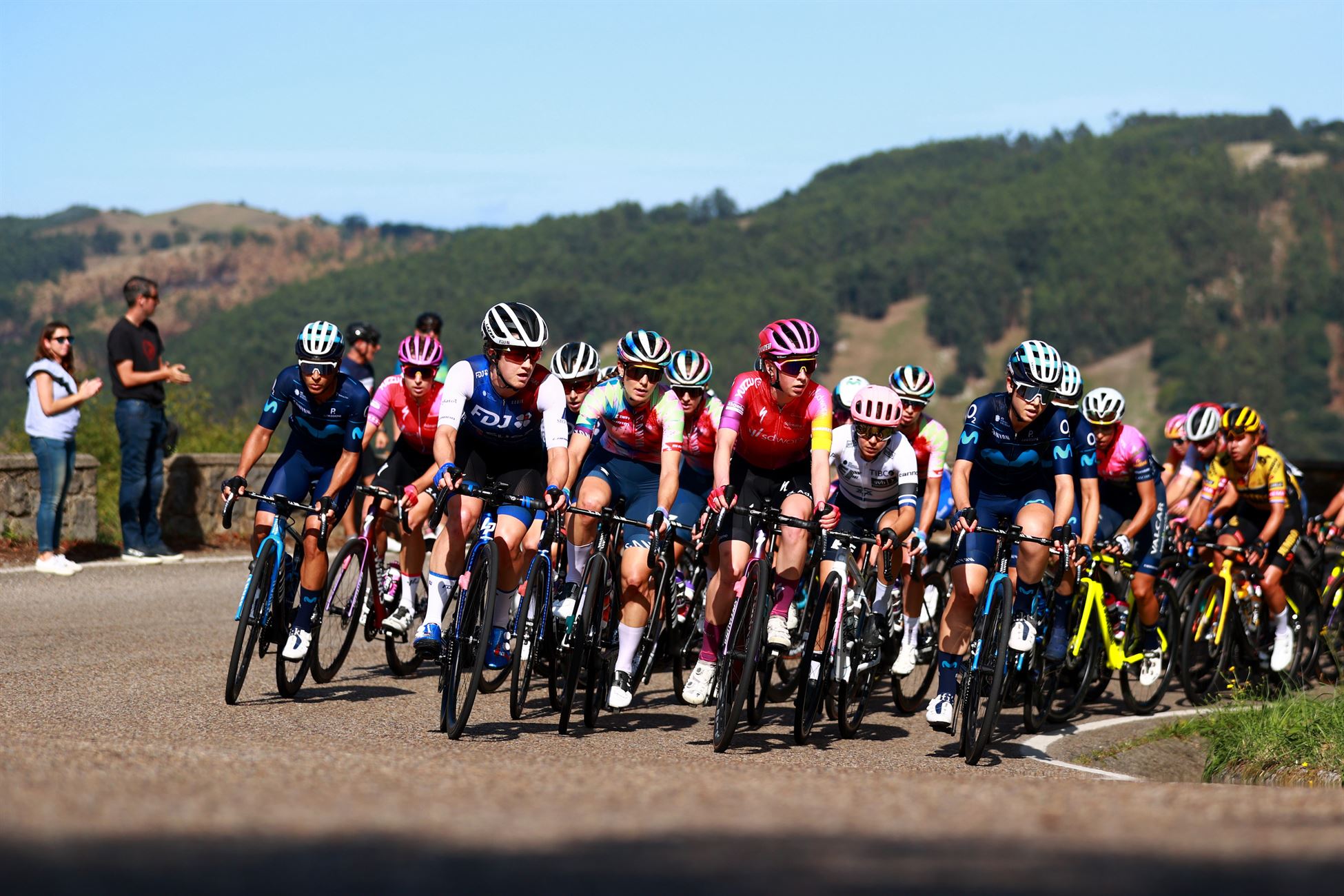
The freshly renamed and expanded La Vuelta Femenina is to start in Torrevieja in southeastern Spain and ends atop the Lagos de Covadonga in the north after more than 700km of racing.
The route for the women's Vuelta a España was announced on Tuesday evening, with the riders facing a team time trial, three flat days, a medium mountain stage and two mountain finishes in May.
The race, formerly known as the Ceratizit Challenge by La Vuelta, has moved to the beginning of May from its previous September home, and has become a lot tougher for the women's peloton, as it seeks to become the third Grand Tour partner to the Tour de France Femmes and the Giro d'Italia Donne.
The Lagos de Covadonga will be a brutal climb on the final day, averaging 7.4% across its 16 kilometres; it has become iconic in the men's Vuelta, with recent winners including Primož Roglič, Thibaut Pinot, and Nairo Quintana. The mountain's inclusion marks its 40th anniversary of being included in the race.
The other mountain-top finish comes on stage five, as the race finishes up the Mirador de Peñas Llanas, which clocks in 1483 metres in altitude. This will come after the peloton has climbed the category one climb the Puerto de Navafría.
The winner for the last two editions has been Annemiek van Vleuten, who in 2022 won the Vuelta as part of a Grand Tour sweep. She praised the Lagos de Covodonga's inclusion.
"To end in such a famous location is essential for the race's media impact as it results in more coverage for the event. I'm glad La Vuelta Femenina by Carrefour.es has chosen such as well-known climb," she said in a press release.
"I'm excited, I know what to expect, it's a very tough climb. It's also good that we have some flat stages, as they also help to make the race very exciting. It's a very complete Vuelta."
The race was originally a one-day affair, similar to La Course by Le Tour de France, called La Madrid Challenge, beginning in 2015. However, it has gradually grown, gaining a second day in 2018, a third day in 2020, a fourth in 2021, a fifth in 2022, and now seven.
As its original name suggests, it has often been centred around Madrid; this year is only the second edition which has not been to the Spanish capital.
The race begins with a 14.5km team time trial in Torrevieja before two flat stages across southeastern and central Spain. There is then a proper climb on stage four to Guadalajara, which will likely see the beginning of a true general classification battle, before stage five's summit finish.
A short, punchy stage six could sprint surprises before the final stage's brutal Asturian climb.
Due to the short race covering so much of the country - 1000km roughly - there will be long transfers for the riders to look forward to, especially between stages five and six.

